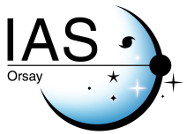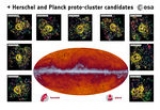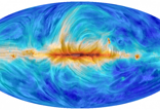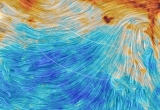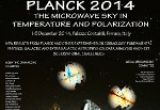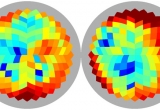Interstellar Matter and Cosmology
Welcome to the pages of the team Matière Interstellaire et Cosmologie (MIC) !
The team is made of two groups, Matière interstellaire (Interstellar Matter) and Cosmologie (Cosmology). Our research activities span a broad range of fields, from the physics of interstellar dust grains to the cosmology of the primordial universe. Details can be found on the Presentation page and on the thematic pages.
Latest news
